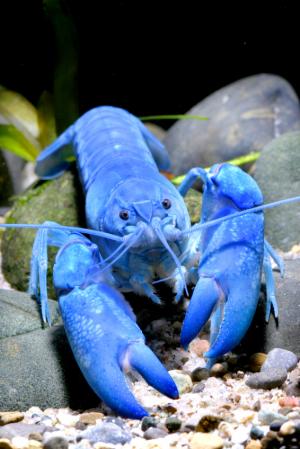

Fighting Australian Crayfish Do Not Forget The Face Of Foes
Feb.29, 2008
The fighting Australian yabby, a type of crayfish, smaller than a lobster but
similar in appearance, does not forget the face of its foes says new research
from University of Melbourne zoologists.
 Cherax
destructor (yabby) from Australia. (Credit: iStockphoto/Chris
Lukhaup)
Cherax
destructor (yabby) from Australia. (Credit: iStockphoto/Chris
Lukhaup)
The two year study involving over 100 pairs of yabbies revealed that the species Cherax destructor is capable of facial recognition of individuals, particularly its opponents.
gThis is a remarkable capacity for the invertebrate species of yabbies and freshwater crayfish. This is an ability known in humans and some vertebrates but in only a handful of invertebrate species,h said Professor David MacMillan, Head of the Department of Zoology who has led the research.
gYabbies usually fight when they meet. It is as much a way of meeting each other as a way of establishing territory.h
Professor Macmillan said an understanding of how simple nervous systems recognise features may assist in developing feature recognition in robots.
In the study, after a fight, the loser yabby was isolated and given a choice between its opponent and another crayfish not involved in the fight.
The loser yabby moved towards the opponent it knew as opposed to the rival it did not, revealing that a yabby is capable of visual identity not just an acute sense of smell. gCareful observation by our team showed that the facial region is the important area for recognition of yabbies during and after a fight,h Professor Macmillan said.
gIn particular we showed highly variable cues are used such as colour and face width.h
Researchers also tested whether it is possible to engineer false identifications and whether animals can distinguish between twin opponents. gWe continue to find the yabby is capable of more than we expected for an animal with such a simple nervous system and an invertebrate.h
"Yabbies remember the smell of other crayfish but the extent to which they remember visual features has previously been unknown.h
The research by the Universityfs Department of Zoology has been published February 28 in the PLoS ONE journal.